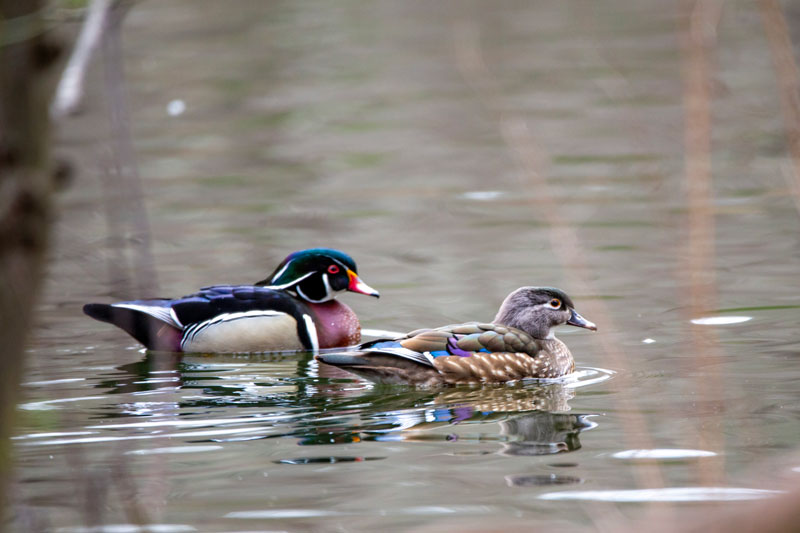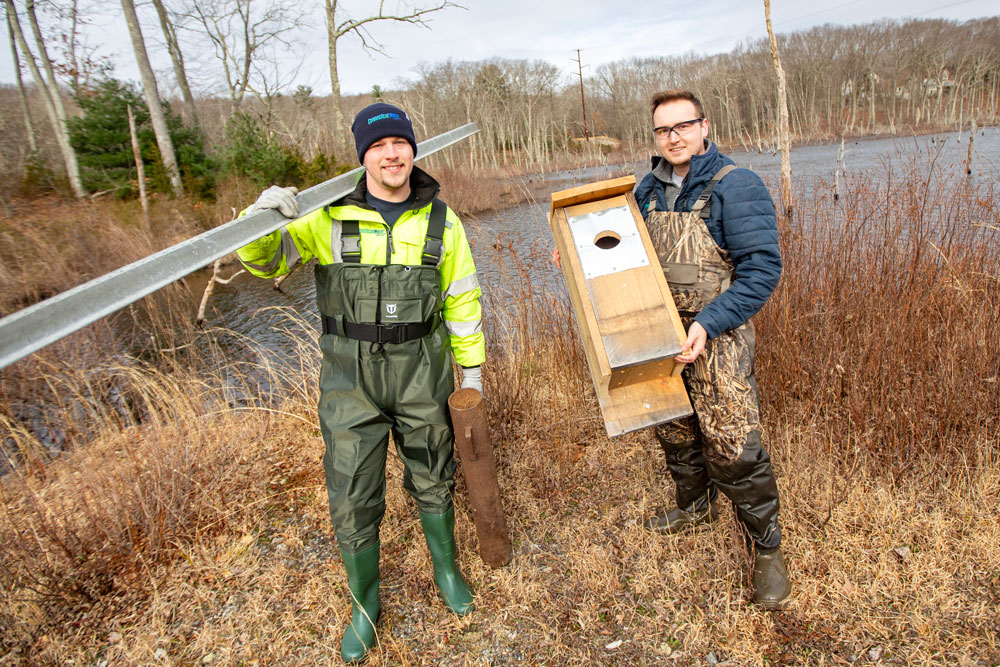Connecticut Water installs wood duck boxes in time for nesting season
Company volunteers use donated materials to help wildlife

Connecticut Water installs wood duck boxes in time for nesting season
Company volunteers use donated materials to help wildlife
WESTBROOK, Conn. — March 28, 2024— Connecticut Water Company volunteers continued the company’s bird box project with the installation of an additional wood duck box in Westbrook, adding to the dozens of bird boxes on company property throughout the state.
 With a striking, almost mosaic-like pattern in their plumage, breeding pairs of wood ducks typically begin arriving in Connecticut in mid-March. Unlike most other ducks, wood ducks nest in tree cavities rather than on the ground. Areas with limited natural tree cavities can limit a wood duck population.
With a striking, almost mosaic-like pattern in their plumage, breeding pairs of wood ducks typically begin arriving in Connecticut in mid-March. Unlike most other ducks, wood ducks nest in tree cavities rather than on the ground. Areas with limited natural tree cavities can limit a wood duck population.
Connecticut Water employees Dan Klune and Rick Atkinson donned waders on a chilly morning to install a new wood duck box on Connecticut Water Company land in Westbrook. Wood ducks will readily use nest boxes in suitable habitat, ideally near a source of water.
The bird box project is a partnership between Connecticut Water, the Connecticut Department of Energy and Environmental Protection (DEEP) and Connecticut Water employee volunteers. Connecticut Water employees used lumber donated by DEEP and scrap signposts donated by the Department of Transportation to construct 40 wood duck and bluebird nesting boxes. Volunteers install the boxes in company watersheds and other land that provide good habitat for these beneficial birds. Company volunteers also maintain and clean the bird boxes.
Wood ducks mark one of the greatest success stories in wildlife management. In the early 1900s, habitat loss, market shooting and hunting seasons during the breeding season drastically reduced populations to the point of being considered in danger of extinction, according to a DEEP fact sheet. The Migratory Bird Treaty Act of 1918, changes to hunting regulations and extensive nest box placement over the past several decades resulted in a dramatic comeback.
Now Connecticut residents can spot wood ducks throughout the state. Connecticut Water volunteers see wood ducks regularly using the nest boxes on company land.
